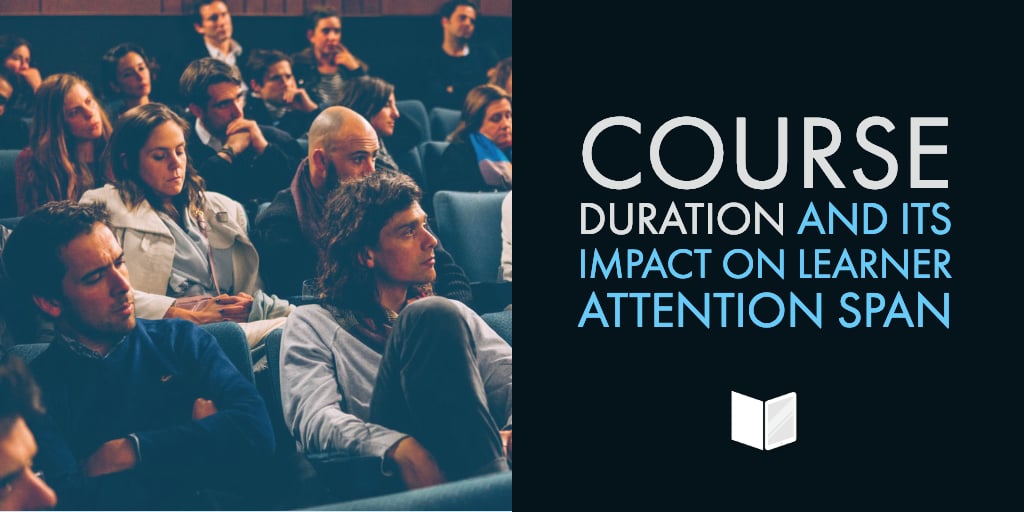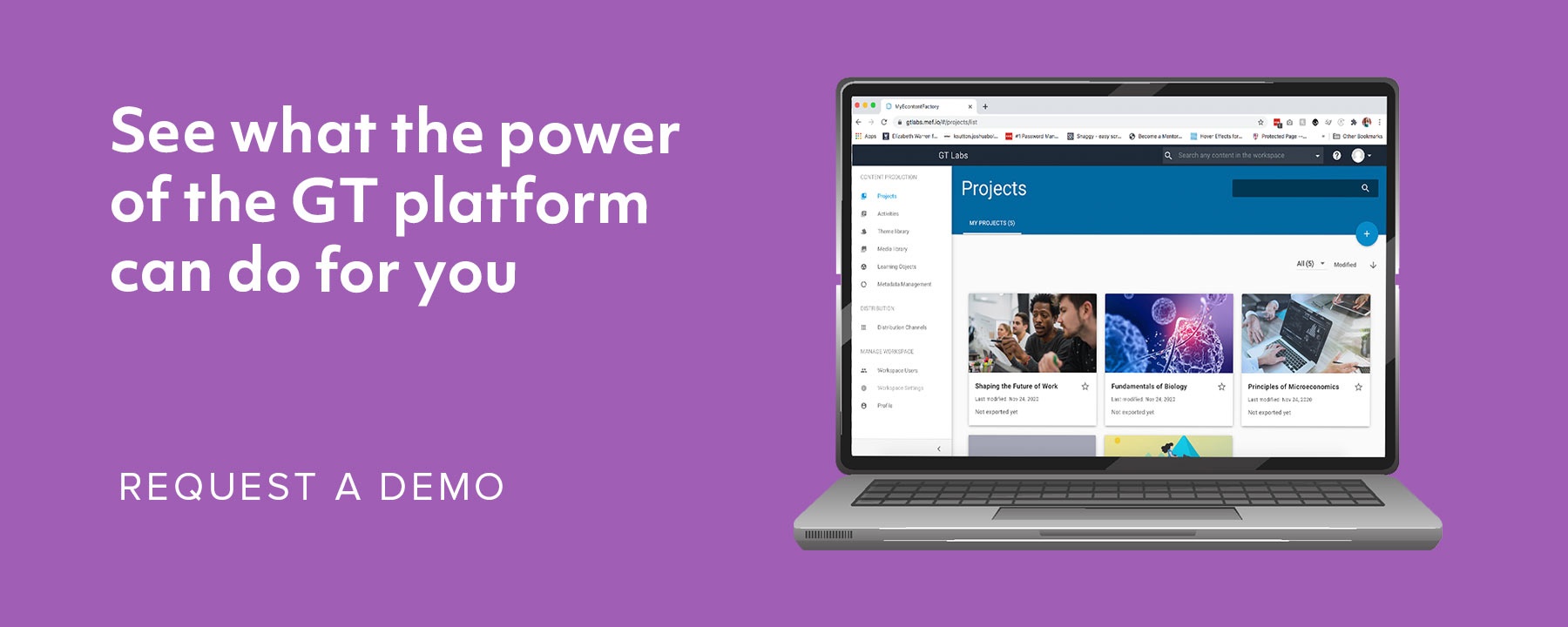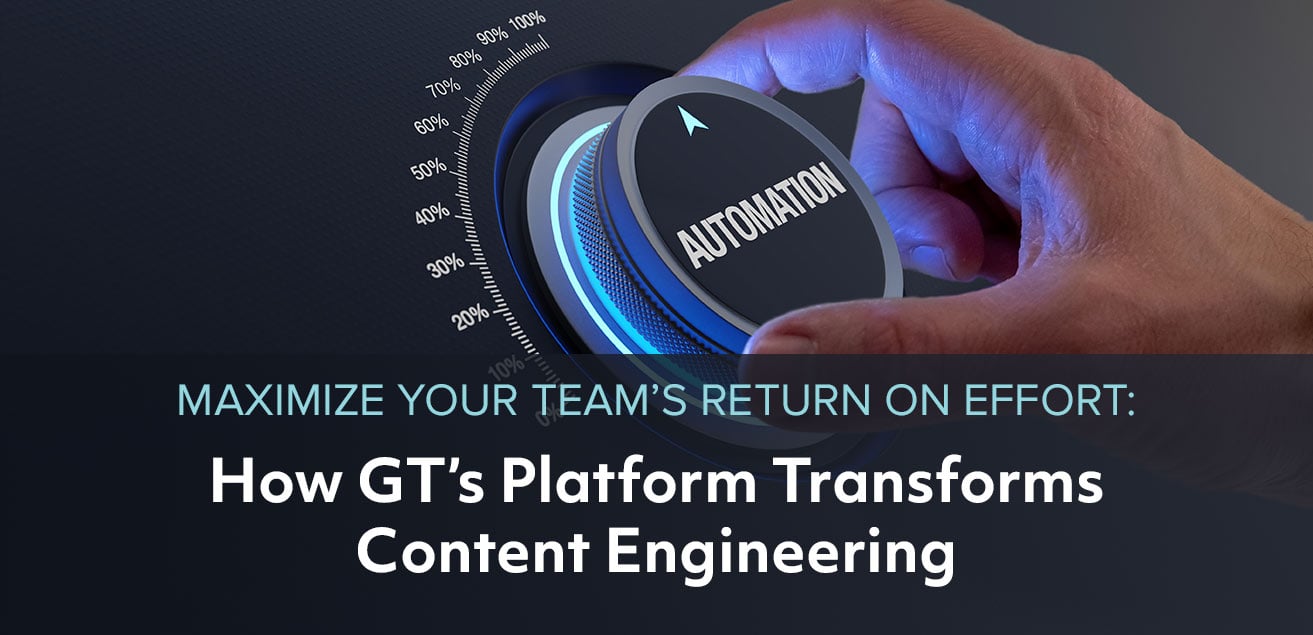In an ideal world, students would step into the classroom with laser-like focus, absorbing hours of information without pause. Take a peek into a college lecture hall and you’ll get a much more realistic picture; amongst the students taking notes and listening intently, you’re guaranteed to find a few dozing off, checking their phones, or zoning out. Despite the appearance of laziness, a wavering attention span is associated less with attitude and more with course duration. Long courses routinely deliver poorer learning outcomes than shorter courses, but why? It all comes down to science.
Lengthy Courses Fight Psychology… and Lose
As it turns out, a lack of discipline or motivation is not to blame for a short attention span. According to most studies, the average adult has a maximum attention span of about 20 minutes. While individuals can choose to re-focus their attention on the same activity repeatedly, it’s normal for lapses in attention to occur.
In one study, students self-reported lapses in attention, describing the duration of lapses and documenting their frequency. While it’s possible students’ desire to perform well in the study influenced them to underestimate the length of each lapse, a clear pattern emerged. Students experienced lapses in attention up to 5 minutes in length, but shorter lapses were the most common. Lapses increased in frequency and duration as the course went on, clearly indicating that course length influenced overall focus levels.
This study and others like it demonstrate what educators have known for years: even the best of students have a limited attention span, and for the best learning outcomes we must learn to work with it.
Is Technology Really Shortening Attention Spans?
Some educators and experts have questioned whether modern technology is having a negative influence on students’ ability to focus. The answer is mixed. While today’s students have the same ability to focus as previous generations did, they are accustomed to a constant barrage of information and online media. Because of this, they’ve developed a preference for faster paced, more interactive learning material. The potential distractions of incoming texts are real, but students are just as capable of paying attention as they were a decade ago - they simply gravitate toward a more hands-on, tech-connected learning experience.
How Long is Too Long? It’s All About Finding a Balance
From a college biology lesson to corporate training, an hour long learning session is almost guaranteed to result in distraction. For this reason, it’s imperative that educators strike the right balance between impactful content and a concise approach. Digital microlearning is an ideal way to strike this balance.
Breaking A Course into Smaller Pieces Improves Retention
No one wants to lighten a course so much that students miss important concepts. Microlearning allows publishers, educators and corporate trainers to break a comprehensive, in-depth course into much smaller pieces. Each learning element should take between 5-15 minutes to complete, enabling short, hyper-focused bursts of learning. These micro-lessons can be reinforced by administering assessments or knowledge checks throughout the course, further improving retention and comprehension. Whether you opt to use microlearning or not, keep content as concise and engaging as possible. Using infographics, video elements, interactive demonstrations, and game-like quizzes are fantastic ways to hold the attention of the modern learner.
There is no right or wrong length to a learning course, so consider the needs of your learners when designing it. Aim to say what needs to be said in as few words as possible, with the greatest number of interactive learning elements, and you’ll be well on your way to launching a great course that keeps your learners' attention.
Gutenberg Technology's MyEcontentFactory (MEF) provides all the necessary tools for crafting truly interactive learning material. Import your existing content and bring it to life, start from scratch or find your happy medium of old and new. Your learners will thank you with open eyes.







Leave a comment